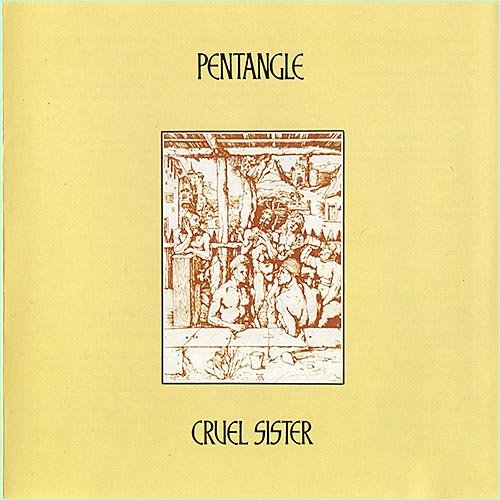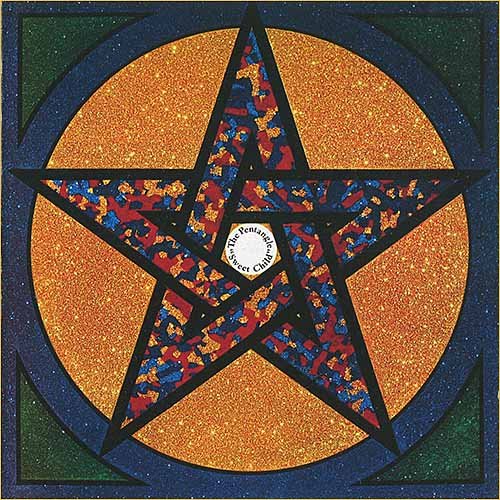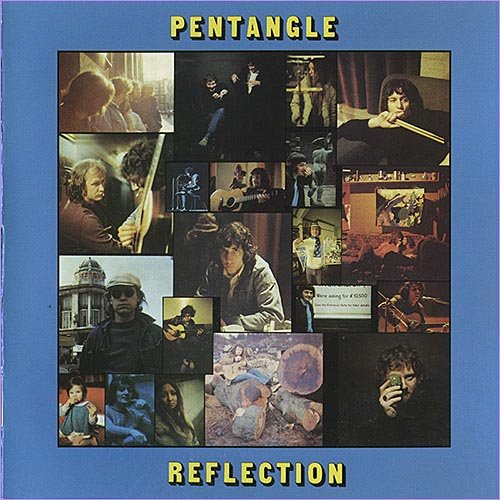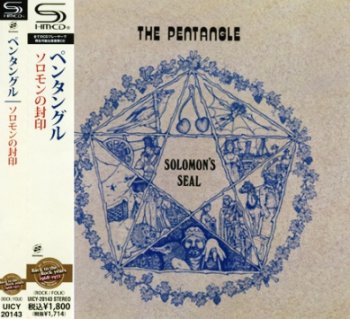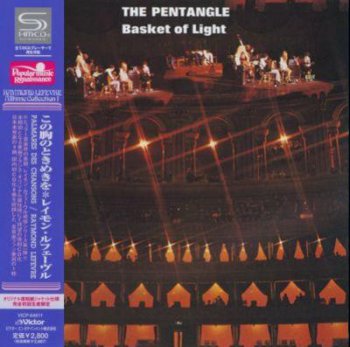Hummingbird: 3 Albums Mini LP SHM-CD - Universal Music Japan 2010
Lossless Galaxy Release Hummingbird: 3 Albums Mini LP SHM-CD Universal Music Japan 2010 Performer: Hummingbird Albums: -------------- ☆☆☆☆☆☆☆☆☆☆☆ -------------- 1975 Hummingbird A"> 1976 We Can't Go On Meeting Like This A"> 1977 Diamond Nights A"> Каждый CD можно скачать отдельно Each CD can be downloaded separately • • • • • • • • • • • • • • • • • • • • • • • • • • • • • • • • Upload: xFile.cloud (5% восстановление) cdjapan.co.jp Cardboard sleeve (mini LP) reissue
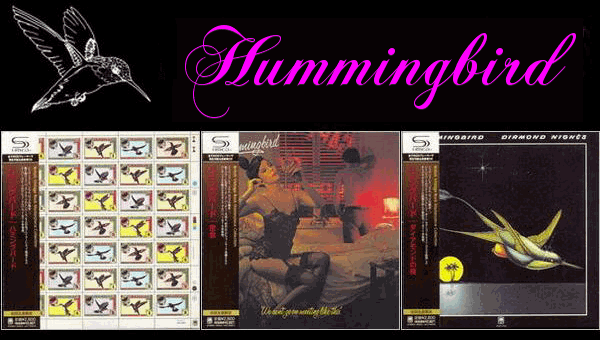
Hummingbird: 3 Albums Mini LP SHM-CD - Universal Music Japan 2010
Lossless Galaxy Release Hummingbird: 3 Albums Mini LP SHM-CD Universal Music Japan 2010 Performer: Hummingbird Albums: -------------- ☆☆☆☆☆☆☆☆☆☆☆ -------------- 1975 Hummingbird A"> 1976 We Can't Go On Meeting Like This A"> 1977 Diamond Nights A"> Каждый CD можно скачать отдельно Each CD can be downloaded separately • • • • • • • • • • • • • • • • • • • • • • • • • • • • • • • • Upload: xFile.cloud (5% восстановление) cdjapan.co.jp Cardboard sleeve (mini LP) reissue
08 10, 2025
Cheap Trick - The Studio Album Collection «Exclusive for Lossless-Galaxy» (Hi-Res) 1977-1990
Исполнитель: Cheap Trick Альбом: The Studio Album Collection «Exclusive for Lossless-Galaxy» (Hi-Res) Жанр: Rock, Hard Rock, Power Pop, Pop Rock Год: 1977-1990 Страна: USA (Rockford, Illinois) Лейбл: Epic, Legacy Формат: FLAC (tracks) Official DR value: DR12,13,13,12,12,11,10,10,11,10,11,13,13 Разрядность: 24bit / 44.1kHz Stereo, 24bit / 96kHz Stereo, 24bit / 192kHz Stereo Размер: 9,11 GB Инфо: wiki Залито на: XFile (3% восстановление)

Cheap Trick - The Studio Album Collection «Exclusive for Lossless-Galaxy» (Hi-Res) 1977-1990
Исполнитель: Cheap Trick Альбом: The Studio Album Collection «Exclusive for Lossless-Galaxy» (Hi-Res) Жанр: Rock, Hard Rock, Power Pop, Pop Rock Год: 1977-1990 Страна: USA (Rockford, Illinois) Лейбл: Epic, Legacy Формат: FLAC (tracks) Official DR value: DR12,13,13,12,12,11,10,10,11,10,11,13,13 Разрядность: 24bit / 44.1kHz Stereo, 24bit / 96kHz Stereo, 24bit / 192kHz Stereo Размер: 9,11 GB Инфо: wiki Залито на: XFile (3% восстановление)
08 10, 2025
DISCO 80’s «Exclusive for "lossless-galaxy" Vinyl Collection» Part 5 (28 × LP · Only Best Albums · 1975-2025)
Performer: Various Album / collection: «Disco 70’-80’-90’s» +++++ Series: Original Vinyl LP™ – Label: (c)(p) 1975-2025 Made in Europe, Japan, USA. Source: Rip by bazar, Dymokust …and many others… ⇒ Conversion 32/96/192kHz by KoGGaN™ Official DR value: •13•13•12•12•12•12•13•12•14•12•12•13•13•14•13• •13•14•12•13•13•13•12•12•11•11•11•12•10• Catalog (Barcode): much… Genre / Style: Pop, Euro-pop, Funk / Soul, Synth-pop, Hi-NRG, Italo-Disco, Disco, CCCP Year (info): 1975-2025 (428 × Original vinyl,

DISCO 80’s «Exclusive for "lossless-galaxy" Vinyl Collection» Part 5 (28 × LP · Only Best Albums · 1975-2025)
Performer: Various Album / collection: «Disco 70’-80’-90’s» +++++ Series: Original Vinyl LP™ – Label: (c)(p) 1975-2025 Made in Europe, Japan, USA. Source: Rip by bazar, Dymokust …and many others… ⇒ Conversion 32/96/192kHz by KoGGaN™ Official DR value: •13•13•12•12•12•12•13•12•14•12•12•13•13•14•13• •13•14•12•13•13•13•12•12•11•11•11•12•10• Catalog (Barcode): much… Genre / Style: Pop, Euro-pop, Funk / Soul, Synth-pop, Hi-NRG, Italo-Disco, Disco, CCCP Year (info): 1975-2025 (428 × Original vinyl,
08 10, 2025
Жанры
Lossless Galaxy Release
Русская музыка
--Поп
--Рок
--Панк
--Альтернатива
--Металл
--Рэп, Хип-Хоп, R'n'B
--Джаз и Блюз
--Фолк
--Шансон, Авторская песня
--СССР
Зарубежная музыка
--Pop
--Rock
--Hard Rock
--Progressive & Art-Rock
--Pop-Rock & Soft Rock
--Instrumental Rock
--Heavy, Traditional, Industrial Metal
--Power, Gothic, Sympho Metal
--Thrash, Speed, Groove, Modern Metal
--Death, Melodic Death, Doom, Dark Metal
--Black, Pagan, Folk, Viking Metal
--Alternative
--Punk
--Disco, Eurodance
--Rap, Hip Hop, R'n'B
--Reggae, Ska, Dub
--Jazz, Blues, Soul
--Folk, Country, Ethnic
--Electronic, Ambient, New Wave
--House, Techno, Trance
Другие жанры
--New Age, Relax, Meditative & Flamenco
--Chillout, Lounge, Downtempo, Trip-Hop
--Drum & Bass, Jungle, Breakbeat, IDM
--Classical / Классическая музыка
--Soundtrack
--Музыкальные сказки
Vinyl Rip
HI-Res / DVD-Audio / DTS
--SACD
--DSD
--DVD-Audio
Сборники Lossless-Galaxy
Альбомы 2022
Альбомы 2023
Альбомы 2024
Теги
1st Press 2022 2023 2024 2025 70... AOR Black Metal Blues Blues Rock Bootleg Series Classic Rock Death Metal Discography Exclusive for Lossless-Galaxy Folk Rock Fusion Hard Rock Heavy Metal Hi-Res Japanese Edition Jazz Jazz Rock lossless Melodic Death Metal Melodic Rock Modern Electric Blues Pop Pop Rock Power Metal Prog Rock Progressive Metal Progressive Rock Psych Rock Psychedelic Rock Rock SACD Symphonic Metal Thrash Metal Дискографии от KoGGaN
Архивы
Опрос
В каком формате хотели бы видеть релизы на сайте ?
 Автор: LeddZepp, 23 февраля 2022, Комментариев: 0, Просмотров: 687
Автор: LeddZepp, 23 февраля 2022, Комментариев: 0, Просмотров: 687The Pentangle - Solomon's Seal [Japan Edition] (1972)
![The Pentangle - Solomon's Seal [Japan Edition] (1972) The Pentangle - Solomon's Seal [Japan Edition] (1972)](/uploads/posts/2022-02/1645597559_pentangle72solomonsseal_500.jpg)
Year: September 1972 (CD Dec 22, 2010)
Label: Sanctuary Records (Japan), UICY-20143
Style: Folk Rock, Acoustic, Rock
Country: UK
Time: 35:39
Format: Flac Tracks 16/44,1 kHz
Size: 210 Mb
В группе все играли только на акустических инструментах.
С момента образования группа почти сразу была причислена музыкальными критиками во всем мире к элите популярной музыки. По словам Rolling Stone, квинтет звучал, как "группа поющих, танцующих, кружащихся в едином порыве эльфов". Они регулярно гастролировали по Англии и США, и их концертные выступления пользовались исключительным успехом: "живой" репертуар мог включать в себя творения Телониуса Монка, госпел и откровенную традиционную музыку. В их сценическом воплощении воскресали король Артур со своими рыцарями, из рук в руки переходил огромный винный рог Фата Морганы, а музыканты танцевали под музыку, переложенную с нот XIV-XVI веков. На американском фестивале фолк-музыки в Ньюпорте в 1969 году их "английский звук тишины" вызвал бурные овации. Для английской серии телепередач Make Three Girls их музыка стала главной темой, а Ава Гарднер заказала им звуковую дорожку к фильму Tam Lin.
(agharta.net/Encyclopedy/pentangle.html)
В названии этой группы отразилось количество участников оригинального состава "Pentangle". Гитаристы Берт Дженш и Джон Ренбоурн познакомились в середине 60-х и тогда же начали вместе записываться. Оба были уже довольно популярны на британской фолк-роковой сцене, а их гитарный дуэт выработал свой уникальный стиль, эдакое фолк-бароккко. В 1967-м, когда музыканты отправились в турне, к ним присоединилась вокалистка Джеки МакШи, а в группу поддержки также попали контрабасист Дэнни Томпсон и барабанщик Терри Кокс.
Совместные концерты сплотили образовавшуюся пятерку, и впоследствии было решено придать команде официальный статус. Номинально "Pentangle" являлись фолк-бэндом, однако в творчестве коллектива слились пристрастия всех его участников.
Например, МакШи выросла на народной музыке, Кокс и Томпсон тяготели к джазу, Ренбоурн увлекался мелодиями средневековья, а Дженшу нравились блюзы и Боб Дилан.
Первое публичное выступление новоиспеченной команды, состоявшееся 27 мая 1967 года в "Royal Festival Hall", прошло с аншлагом, а за ним последовали два небольших тура – дома и в Дании.
Открывший "Pentangle" антрепренер Брюс Даннетт на тот момент уже ушел в тень, и руководство коллективом взял на себя Джо Ластиг. Этот тип оказался весьма энергичным менеджером, и с его подачи группа быстро сменила маленькие клубы на приличные концертные холлы. В 1968-м на "Transatlantic Records" вышел первый виниловый блин "Pentangle". Альбом был полностью акустическим, но критики отметили новаторскую игру музыкантов, сделавших саунд "колокольчикоподобным".
Летом того же года команда выступила в "Royal Albert Hall", и материал с концерта составил половину двойного альбома "Sweet Child" (вторая половина была записана в студии). Группа переживала творческий подъем, и третья пластинка стала самой успешной в ее дискографии. "Basket Of Light" поднялся до пятой строчки британских чартов, чему в наибольшей степени способствовал сингл "Light Flight" с песней, прозвучавшей в сериале "Take Three Girls". Находясь на пике популярности "Pentangle" приняли участие в саундтреке к фильму "Tam Lin", неоднократно засветились на телевидении и провели крупный английский (с заездом на "Isle Of Wight Festival") и американский (с появлением в "Carnegie Hall") туры.
Далее дела пошли под гору, и альбом "Cruel Sister", полностью состоявший из обработок народных песен, потерпел коммерческое фиаско. На пластинке "Reflection" ансамбль вернулся к смеси традиционного и оригинального материала, однако критики приняли работу без большого энтузиазма. После данного релиза команда рассталась с "Transatlantic" и ушла работать под крышу "Warner/Reprise". Впрочем, на этом лейбле коллектив успел выпустить всего один альбом, и в начале 1973-го "пятиугольник" развалился. Первый реюнион "Pentangle" произошел в 1982-м, когда команда впервые за десять лет выехала в турне. По окончании гастролей сбежал Ренбоурн, решивший заняться классической музыкой, а его уход повлек за собой вереницу кадровых перестановок. В конечном итоге из старичков остались только Дженш и МакШи, однако ведомый ими коллектив успел выпустить несколько альбомов, прежде чем распасться вторично.
Берт вплотную занялся сольной карьерой, а Джеки продолжила работать с другими музыкантами под вывеской "Jacgui McShee"s Pentangle". Между тем, у публики оставался неутоленный голод по творчеству оригинального состава, и поэтому время от времени на свет появлялись различные сборники "Pentangle". В 2007 году великолепная пятерка за свои заслуги получила "BBC Radio 2 Lifetime Achievement Folk Award".
(rockfaces.ru) Last update 29.06.08)
01. Sally Free and Easy (03:59)
02. The Cherry Tree Carol (03:04)
03. The Snows (03:48)
04. High Germany (03:20)
05. People on the Highway (04:46)
06. Willy O' Winsbury (05:56)
07. No Love is Sorrow (02:47)
08. Jump Baby, Jump (03:14)
09. Lady of Carlisle (04:44)
![The Pentangle - Solomon's Seal [Japan Edition] (1972) The Pentangle - Solomon's Seal [Japan Edition] (1972)](https://i.ibb.co/ScGnYRn/Pentangle72-Solomons-Seal-01.jpg)
![The Pentangle - Solomon's Seal [Japan Edition] (1972) The Pentangle - Solomon's Seal [Japan Edition] (1972)](https://i.ibb.co/7khphzL/Pentangle72-Solomons-Seal-02.jpg)
![The Pentangle - Solomon's Seal [Japan Edition] (1972) The Pentangle - Solomon's Seal [Japan Edition] (1972)](https://i.ibb.co/CBcyQ0X/Pentangle72-Solomons-Seal-back.jpg)
При желании можно посмотреть все мои публикации на сайте. Приятного прослушивания. Жмём и смотрим (Click to see all of my posts)!
Внимание! У Вас нет прав для просмотра скрытого текста.
Похожие новости:
Комментарии отсутствуют
Добавить комментарий!
Информация
Посетители, находящиеся в группе Гости, не могут оставлять комментарии к данной публикации.

